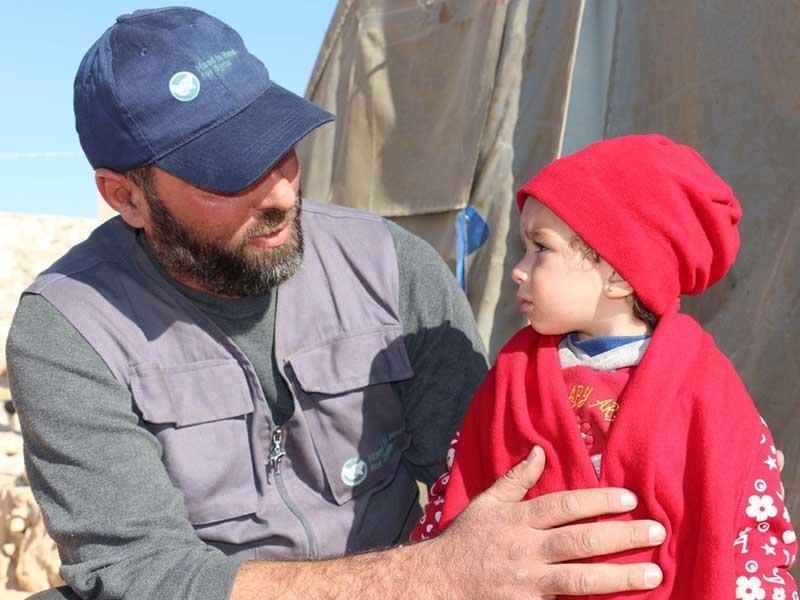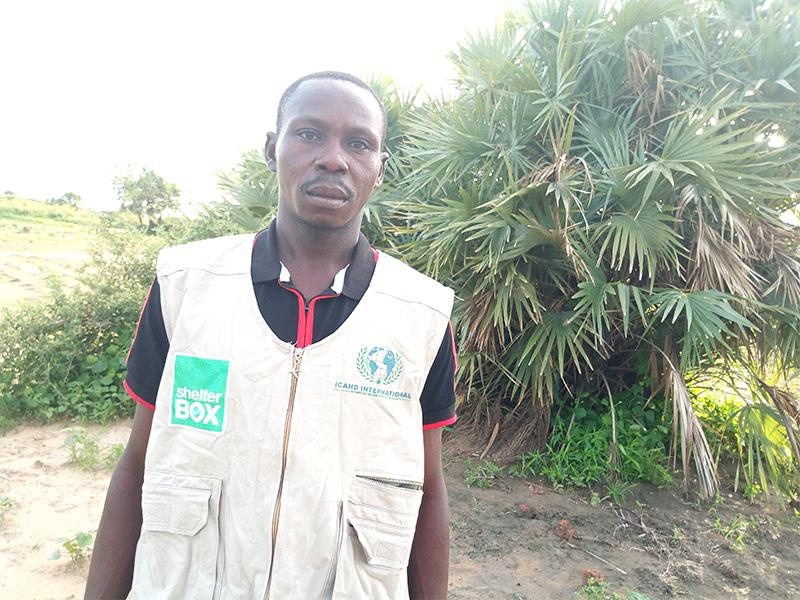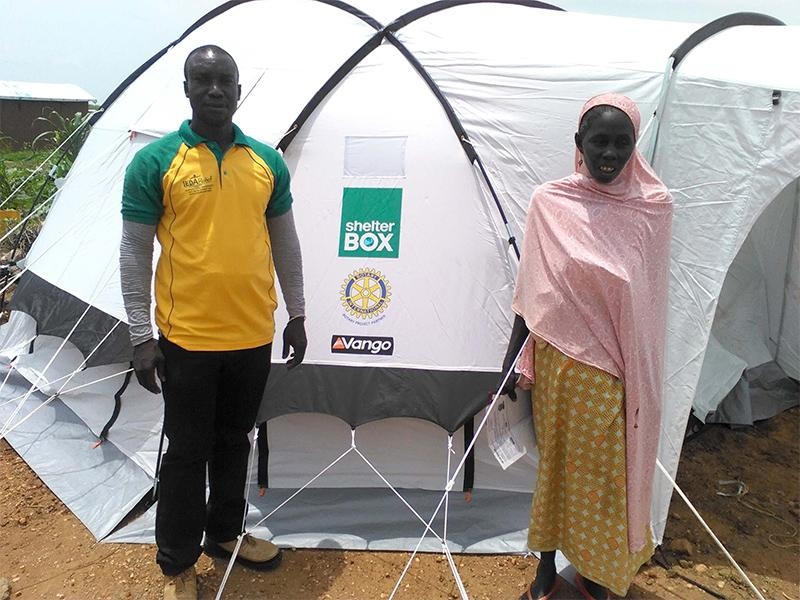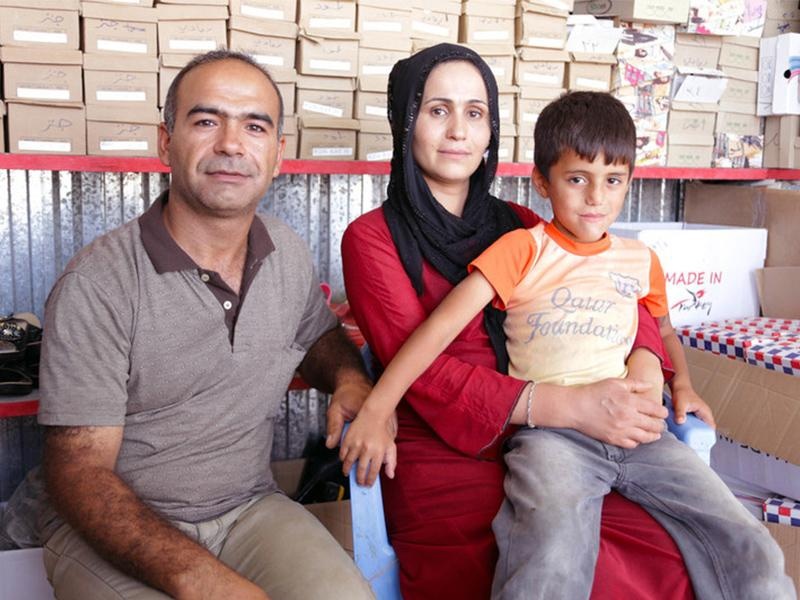Right now, millions of civilians and aid workers around the world are caught up in conflict.
Every day they risk everything, just trying to live a normal life or help people in need. To mark World Humanitarian Day, held every year on August 19 by the United Nations, we’re paying tribute to our partners and the incredible individuals who work closely with us to deliver aid in some of the most dangerous places in the world.
In 1987, Terry Waite CBE was captured by Hezbollah and taken hostage for five years.
He knows what it’s like to work in conflict areas. He knows how it feels to be a target.
Our lifesaving aid can only be delivered in conflict zones if our staff, volunteers and partners are kept safe.
Aid workers and civilians are #NotATarget. Read on to find out why they risk their lives every day and what the word ‘humanitarian’ means to them.
WHO ARE OUR PARTNERS?

Our partners help us provide aid in some of the most remote and dangerous conflict zones around the world.
In the Syrian region, where the brutal conflict has been raging for seven years, we’re working with Bahar Organization, Hand in Hand for Syria and ReliefAid.
Across the border in Iraq, we partner with ACTED to deliver aid to families who have been forced to run for their lives and abandon their homes.
We’re also working with IEDA Relief, Plan International, ACTED and ICAHD International in the Lake Chad Basin, where families are fleeing Boko Haram attacks and the counterinsurgency efforts.
But what motivates these extraordinary individuals to risk their lives to deliver aid to strangers in some of the most conflicted areas in the world?
What does 'humanitarian' mean to you?
we spoke to our partners in the lake chad basin to find out why they risk their lives every day and what the word 'humanitarian' means to them

The humanitarian world in my opinion is a motivation and commitment to help the vulnerable, respect the situation in which people live, and be ready to respond and sacrifice [ourselves].
– Allara Socrate, ICAHD International Field Supervisor
Allara works for our partner, ICAHD, in Chad.
Providing humanitarian aid is one of Allara’s biggest priorities in life. His hope for the future is to continue providing help to people who have lost their homes and have nowhere to go.
Right now there are thousands of vulnerable children, women and families in Chad and beyond. The numbers of families who are not safe keep going up, as deadly attacks by Boko Haram continue.
For Allara, the urgency of providing humanitarian aid became even more transparent recently when bloody attacks by Boko Haram occurred not far from the ICAHD distribution site.
These attacks killed 18 people and left several other civilians injured and running to protect their children. Ten people were also kidnapped.
Witnessing this attack has deeply affected Allara.

The word ‘humanitarian’ for me means any person or action on behalf of humanity in order to reduce its suffering.
– Mohamadou Baba, IEDA Relief
Mohamadou works for our partner IEDA Relief at Minawao camp in Cameroon.
For him, the cultural exchange with families within the camp is very important.
He believes that the greatest priority for all humanitarian aid workers should be to improve living conditions for families.
Listening carefully and paying attention to their problems and needs makes a great difference in helping these people in need.
Mohamadou’s ability to speak the local language and being familiar with the cultural habits of the area is an added benefit.
Mohamadou hopes to go further in his humanitarian work and get international experience in the humanitarian world.
Marwa's story
air workers and civilians like marwa are not a target

Read the eyewitness account of Marwa, a young woman from Mosul who works with ShelterBox to support people who have fled the brutal conflict in Iraq.
Marwa works for our partners in Iraq. The local team members, just like Marwa, are able to reach the places we can’t.
After Islamic State arrived in Hamdaniyah, they targeted men […]. In June 2014, my brother was shot because he was friends with soldiers. It was very difficult for my family to go on after that.
Our Partners
helping us to provide aid in long-term conflicts and crises
Hand in Hand for Syria
Bahar Organization
Plan International
ACTED
ICAHD International
Actionaid
IEDA Relief
ReliefAid
Responding all over the world
We support the most remote communities across the world that are affected by conflict and violence.
Right now, millions of men, women and children around the world are left homeless and scared because of war and conflict.
Together with our partners, we go the extra mile to help the most vulnerable families whose lives have been devastated. Our work isn’t done until no family is left without shelter.
